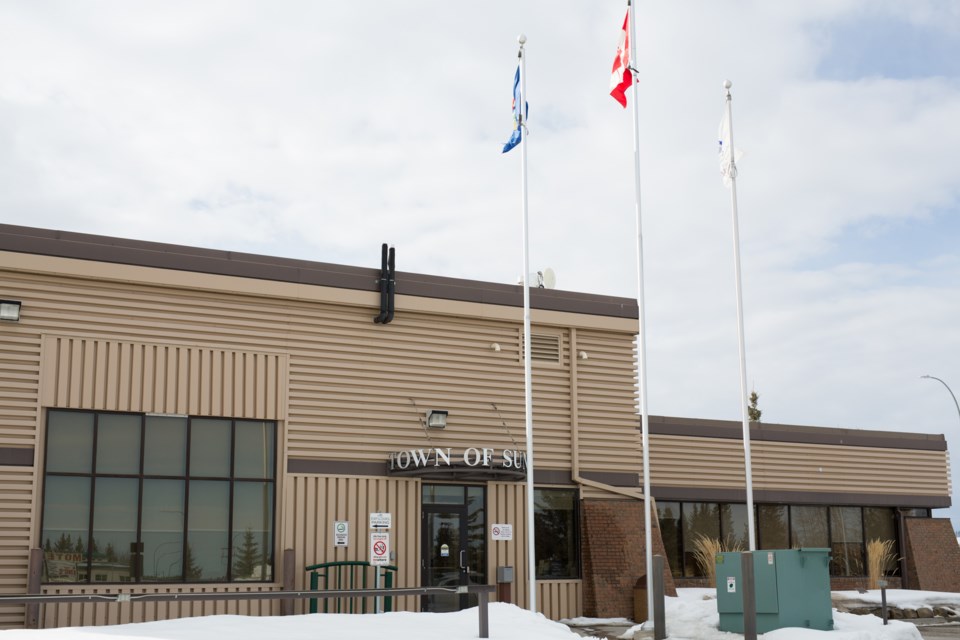SUNDRE – In a first-ever situation for Sundre's council, mayor Richard Warnock sought to engage his colleagues in a roundtable discussion to consider each and every resolution that will be presented at the 2024 Alberta Municipalities conference Sept. 25-27.
Among the numerous items discussed on Sept. 9 over the span of nearly one hour during a regular meeting of council was an ABMunis proposal moved by the City of Calgary and seconded by the Town of Penhold to advocate the provincial government to extend municipal voting rights to permanent residents.
“This one is a case where Sundre is small enough that I don’t believe it would have much effect on our municipality,” Warnock said.
“But you could see what it does in major cities,” he added, opening the floor to his colleagues for further input.
Coun. Jaime Marr spoke against supporting that resolution and outlined her reasons why.
While the councillor said she was interested to learn that people residing in Canada under a permanent residency status can as of new rules passed in 2022 now apply to enlist with the armed forces and the RCMP, Marr nevertheless expressed hesitation.
“Just knowing our demographic and understanding the people of Sundre, I think that this is maybe not in the cards for Sundre to support,” she said.
“Or at least, ask a few more clarifying questions on this,” she said. “Voting is typically a right reserved for Canadian citizens.”
Recognizing that permanent residents are often pursuing what can be a long and drawn out process on the path to full citizenship, she expressed the opinion that a person should only be able to vote once they’re officially Canadian.
“That’s the gift, that’s the celebration,” she said.
Coun. Todd Dalke, who joined the meeting remotely by phone, said he agreed with his colleague.
However, Coun. Owen Petersen held an opposing perspective.
“I think this is going to have a lot of debate at the AM conference,” said Petersen. “I am firmly on one side of the road though.”
As municipal officials serving the lowest level of government, he said council perhaps forgets their position.
“We’re sometimes called the child of the province, which I don’t like. I think we’re more like the minimum wage employees of the province because they can fire us at any moment,” he said about the provincial government.
“They keep us in our lane. We deliver clean water and garbage and sewer issues; we’re not dealing with the armed forces, we’re not dealing with health care, we’re not dealing with teachers,” he elaborated.
“Garbage and roads and parks. That’s our mandate, OK? So, to say that a permanent resident can die for the country in the armed forces and can be a peace officer, and (yet) can’t put any influence on garbage removal and roads, is just crazy,” he said.
“If you can die for our country, you can vote on a municipal level,” said Petersen, adding citizenship status should be a requirement reserved only for provincial and federal elections.
“But I think we need to remember that we’re municipally-elected officials. So I fully, fully support this,” he said.
The mayor felt that expanding the right for permanent residents to vote in municipal elections could potentially set a precedent.
“I also think that we should vote no to this one,” he said. “This can blow up into something really big.”
However, the mayor also recognized the difference of opinion on council and suggested further listening to the comments raised during the conference and possibly reassessing pending that discussion.
“For the record, we can collectively make a decision and have excellent and polite conversation,” said Marr.
“At the conference, we can discuss collectively as a council – and this is excellent fodder for some information sharing – so we can discuss as a council what we think as a majority,” she said.
“But at the end of the day, each one of us gets to vote independently from the rest,” she said.
“That is within the conference bylaws. And I do appreciate what you said,” she told Petersen. “I think it is very powerful.”
The resolution that will be presented at the conference in part reads that, “municipal governments have a unique legislative opportunity to honour the contributions of permanent residents – who are long-term constituents, neighbours, and community members who pay property taxes and fees for municipal services, contribute to our local economy by working and purchasing goods and services, and create vibrancy in areas of social and cultural life – by extending them a democratic voice in local governments.”
Additional background context included in the ABMunis resolution’s package states that numerous international examples of permanent residents or their equivalents being granted the right to vote in local elections exists in more than 45 countries including the U.S., the U.K., Ireland, Germany, New Zealand, Switzerland, Denmark, Finland, Israel and Australia.




